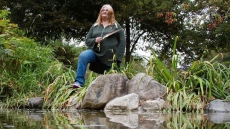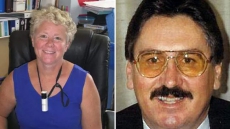VANCOUVER — Indigenous drug users in British Columbia are 13 times more likely to die compared with other Canadians of the same age, says a decade-long study calling for cultural connections as a path to healing deep-rooted pain.
The study conducted by the Cedar Project Partnership of First Nations groups and researchers included 610 Indigenous people who smoked or injected drugs in Vancouver and Prince George and were between the ages of 14 and 30.
Forty people died during the study period between 2003 and 2014, and 65 per cent of them were women, says the study published Monday in the Canadian Medical Association Journal.
"The death rates among young Indigenous people who use drugs reported in this study are appalling and must be viewed as a public health and human rights issue," the study says.
An additional 26 participants have died since the research was completed, and 15 of them had overdosed. Illness — including hepatitis C and HIV — and suicide were the next causes of death, it says.
The ongoing Cedar Project is based at the BC Children's Hospital Research Institute and has been examining links between historical traumas, such as residential schools, childhood sexual abuse and child welfare systems, on HIV and hepatitis C infection among young Indigenous drug users.
Researchers from the University of British Columbia, the University of Northern British Columbia, the Vancouver Native Health Society and the Canadian Aboriginal AIDS Network were among those involved in the study.
"It is possible that some of the overdoses observed were in fact suicides," it says, adding previous findings by the Cedar Project indicate trauma affecting generations of Indigenous people may lead to "rejection of life itself."
Suicide prevention must include a holistic approach to mental well-being that incorporates Indigenous culture, including ceremony and traditional languages, the study says.

"Indigenous leaders in Canada are concerned that their young people are dying prematurely, particularly those involved in the child welfare system, those entrenched in substance use and those living with HIV or hepatitis C."
Researcher Dr. Martin Schechter, a professor in the school of population and public health at the University of British Columbia, said autonomy among First Nations communities to promote health within their own culture is a crucial need to protect young people.
"Our research has also shown that people in the Cedar cohort who reported more contact with Indigenous culture by attending ceremonies or speaking the native language, those people were more resilient, had less risk than people who didn't," he said.
The study shows women are using more drugs, perhaps as a form of self-medication, to cope with childhood trauma, Schechter said.
"It seems like trauma, and historical trauma, is having more of an effect on the young women than the men."
Karen Urbanoski, a scientist at the Centre for Addictions Research of British Columbia, said in a related commentary in the Canadian Medical Association Journal that the findings point to the need for tailored services and policies for Indigenous people, who have poorer health, on average, than their non-Indigenous counterparts.
"First Nations, Metis and Inuit people in Canada also carry a disproportionate burden of the harms related to substance use," she said, adding there's evidence people who identify as Indigenous are less likely to receive treatment for substance use and those who access it are likely to drop out.
In August, the First Nations Health Authority released data suggesting Indigenous people of all ages are five times more likely to overdose and three times more likely to die from overdose than others.
Dr. Shannon McDonald, deputy chief medical officer of the health authority, said a significant number of youth in the study were specifically identified as having been in the child welfare system.
"The rates of apprehension are very high among First Nations and Aboriginal people so many of these people have never had the opportunity to be connected," she said.
McDonald said First Nations groups are working hard on community-led, community-designed programs, especially for youth who have been separated from families and communities for most of their lives.


